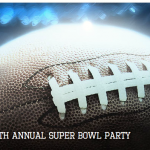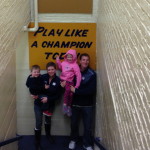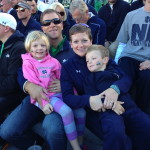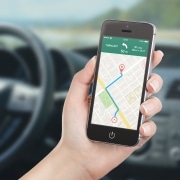Here are 17 Famous Examples of Mental Toughness
Mental Toughness depends on our ability to re-focus, let go of mistakes, and use setbacks as comebacks! It’s not about the setback, it’s about the comeback!
Here are 17 Examples of Mental Toughness
Here are top 25 examples of people who can Puke & Rally
• In game 5 of the 1956 World Series, Don Larson pitched the only perfect game in history. However, in-game 2 of the same series, he pitched only 1.2 innings and lost the game 13-8.
• Hall of Famer, Raymond Berry, who retired as the NFL’s all-time reception leader, only caught 13 passes his entire rookie year in the league for the Colts.
• Roger Federer, the greatest tennis player in history, has won seven Wimbledon titles. Yet, he lost in the first round of Wimbledon his first three years of playing.
• Taylor Swift was passed over by RCA for a record contract at age 15.
• Andre Agassi lost his first three Grand Slam Finals.
• Jeff Immelt was hired on Thursday, September 7, 2001 as CEO of General Electric (GE), the multi-national conglomerate, following Jack Welsh, the famous icon. The following Tuesday, Septemer 11, 2001, the rookie CEO watched on NBC, which GE owned, as two GE-financed planes crashed into the Twin Towers that GE insured.
• Jim Marshall of the Minnesota Vikings recovered a fumble and ran it the wrong way to the end zone, and threw it out-of-bounds for a safety. The next drive, he sacked the quarterback and forced a fumble which his teammate picked up and ran for a game-winning TD.
Now, this is the greatest of examples of mental toughness, because if you google his name, you’ll only witness the setback.

• Matt Biondi was a favorite to win 7 Gold medals at the 1988 Olympic games. He lost his first two finals, going 0-2. He ended up winning 5 Gold medals at the Games. There’s the proof it’s all about the comeback!
• Mike Krzyzewski, during his first three seasons at Duke University, had an equivocal record of 38-37, with an ACC in-conference record of just 13-29. This career ended well, but it took patience…
• William Jennings Bryan was nominated by his party to run for U.S. President three times and lost every time. In 1925, at age 65, his brilliant defense decided the Scopes Monkey Trial.
• Country singer Trace Adkins was shot by his ex-wife and survived. The bullet even went through his heart and both lungs. These are painful examples of mental toughness.
• Danielle Ballengee slipped and fell down a 60-foot cliff while on a training run and spent two days stranded outdoors in Utah suffering with a shattered pelvis and internal bleeding. Just 150 days after her accident, 90 of which were in a wheelchair, she finished fifth in a 60-mile adventure race that included mountain biking, running, orienteering, kayaking, and a ropes course. Wow, such extreme examples of mental toughness!
• Jim Abbott, who had only one hand and pitched for 10 years in the Majors, culminated with throwing a no-hitter in 1993. He threw his no-hitter against the Indians, whom he faced the outing before lasting only 4 innings and giving up 7 runs.
• Lady GaGa was originally signed to Def Jam Recordings at age 19, but the company let her go after just three months.
• George Washington lost his first battle. He had plenty of examples of mental toughness in his life.
• Johnny Unitas’ first pass was intercepted for a touchdown. He wound up playing for 18 seasons and throwing a touchdown in 47 consecutive games.
• Napoleon Hill, author of a best-seller, could not think of a name for his book. Unless he came up with one, the publisher would use the title, Use Your Noodle to Get the Boodle. Hill awoke at 2 a.m. on the deadline date, when the title came to him, Think and Grow Rich. Why is this mental toughness? Because we have to trust ourselves…
• Roger Bannister finished fourth in the 1952 Olympics. It was this hinge moment and disappointing finish that drove him to break the four-minute mile. Wow!
All of these examples of mental toughness have one common theme and that is there was a setback, failure, and futility before the comeback.
 Dr. Rob Bell is a Sport Psychology Coach. DRB & associates coach executives and professional athletes. Some clients have included three different winners on the PGA Tour, Indy Eleven, University of Notre Dame, Marriott, and Walgreens.
Dr. Rob Bell is a Sport Psychology Coach. DRB & associates coach executives and professional athletes. Some clients have included three different winners on the PGA Tour, Indy Eleven, University of Notre Dame, Marriott, and Walgreens.
- Check Out All The Books
- Keynote Speaking On Mental Toughness
- Mental Toughness Podcast as we interview expert athletes and coaches about Mental Strength and their Hinge Moment.
- New Mental Wellness Blog Posts are published weekly.
- Follow on Twitter @drrobbell
- Follow on Instagram @drrobbell










